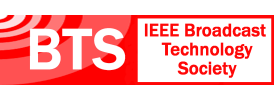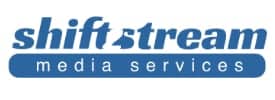- About
- Members
- Sponsors
- Subcommittees
- About Our Subcommittees
- Technology Group 3
- Implementation Team 1 – Advanced Emergency Information
- Implementation Team 2 – India
- Implementation Team 3 – ATSC 3.0 Conformance
- Implementation Team 4 – Brazil
- Implementation Team 5 – Tower Network
- Implementation Team 7 – Caribbean
- Implementation Team 8 – Automotive
- Planning Team 4 – Future Broadcast Ecosystem Technologies
- Planning Team 5 – Automotive Applications
- Planning Team 6 – Global Recognition of ATSC 3.0
- Planning Team 9 – Sustainability
- Technical Documents
- News
- Events
- Spotlight ATSC 3.0
- Contact Us
- Member Login
- Member Meetings
- Advanced Search
Search Site
Member Links
- About
- Members
- Sponsors
- Subcommittees
- About Our Subcommittees
- Technology Group 3
- Implementation Team 1 – Advanced Emergency Information
- Implementation Team 2 – India
- Implementation Team 3 – ATSC 3.0 Conformance
- Implementation Team 4 – Brazil
- Implementation Team 5 – Tower Network
- Implementation Team 7 – Caribbean
- Implementation Team 8 – Automotive
- Planning Team 4 – Future Broadcast Ecosystem Technologies
- Planning Team 5 – Automotive Applications
- Planning Team 6 – Global Recognition of ATSC 3.0
- Planning Team 9 – Sustainability
- Technical Documents
- News
- Events
- Spotlight ATSC 3.0
- Contact Us
- Member Login
- Member Meetings
- Advanced Search
ATSC News
President’s Memo
Posted on September 3, 2014 in ATSC News
After an unusually busy summer, the ATSC is looking ahead with great enthusiasm to an even more action-packed fall. I continue to be impressed with the progress of our technology groups on the development of the ATSC 3.0 standard. I’m particularly glad to see how talented individuals, often with differing viewpoints, can work together to […]
I-Team on ATSC Interactivity
Posted on September 3, 2014 in ATSC News
While the ongoing work to develop a next-generation ATSC 3.0 standard tends to grab most of the headlines, significant work has been underway on backwards-compatible enhancements to the existing standard that’s been dubbed “ATSC 2.0.” Standardization is nearing completion, and the enabling technologies in the ATSC suite of enhancements represent important building blocks for new […]
Member Profile: Pearl TV
Posted on September 3, 2014 in ATSC News
One of the ATSC’s newest members is Pearl, a partnership of broadcast companies formed in 2010. Anne Schelle, Managing Director of Pearl, sat down with THE STANDARD to discuss her organization and their participation in ATSC activities. “We have a shared interest in exploring forward-looking broadcasting opportunities, including innovative ways to promote local broadcast TV […]
Monthly Standards Update
Posted on September 3, 2014 in ATSC News
Get the latest information regarding ATSC Standards Committees, Groups, Implementation Teams, new Publications and Projects from the most recent ATSC Activities Report available on this link as a .pdf: http://atscnextgentv.vp77wsn4-liquidwebsites.com/cms/standards/Activity-Report.pdf
President’s Memo
Posted on August 6, 2014 in ATSC News
As we enter the final month of summer and thoughts turn to getting the kids back to school, we at the ATSC are having our share of summertime fun. The technology groups are already back at school, forging ahead on their important standards work – challenging and dare I say enjoyable work for the scores […]
Someone You Should Know
Posted on August 6, 2014 in ATSC News
Ira Goldstone, Univision Television Group Ira Goldstone, a key member of the engineering leadership team at Univision, has been a significant player in the television industry for the past 44 years, bringing significant experience and expertise to the ATSC Board of Directors. Beginning in Boston back in the late 1960s as a Summer relief tech […]
2015 Broadcast TV Conference: Save the Date
Posted on August 6, 2014 in ATSC News
The 2015 ATSC Broadcast Television Conference is scheduled for May 13-14, 2015 at the Ronald Reagan International Trade Center in Washington, D.C. We are excited to once again host our members, guests, and industry leaders in the nation’s capital. More details will be available shortly. In you have questions, please contact: Lindsay Shelton-Gross, 202-872-9160, lsheltongross@atsc.org.
ATSC Ballot Update
Posted on August 6, 2014 in ATSC News
Considerable progress has been made toward completion of the ATSC 3D-TV suite of standards. Developed in TG1/S12, the Specialist Group on 3D-TV, the suite consists of a number of Parts, as follows: Part 1, “3D-TV Terrestrial Broadcasting” – just approved by the ATSC membership and now published on the ATSC web site. Part 2, “Service […]
Mobile Emergency Alert Guide Now Available
Posted on August 6, 2014 in ATSC News
The Implementation Guide to the ATSC-standardized A/153 Mobile Emergency Alert System is now available for download from the public ATSC.org website. The Mobile Emergency Alert System is a new broadband mobile data service that enables broadcasters to transmit emergency messages in their Mobile DTV broadcast signal. This technology is designed to enhance traditional EAS messaging by […]
New 3.0 ‘Ecosystem’ Group Formed
Posted on August 6, 2014 in ATSC News
TG3, the Technology Group charged with developing the next-generation ATSC 3.0 standard, has formed a new “Ecosystem” Specialist Group to model and evaluate the environment in which ATSC 3.0 systems will be deployed. Designated S35, the Specialist Group on the ATSC 3.0 Ecosystem is being chaired by Merrill Weiss, digital TV pioneer and long-time ATSC […]
News Categories
News Archives
Subscribe
Subscribe to The Standard, our monthly newsletter. Learn More
Join ATSC
ATSC is a membership organization with both voting and observer categories. Voting members include corporations, nonprofit organizations, and government entities, and they participate actively in the work of ATSC. Observers are individuals or entities not eligible to be a voting member.
Subscribe to our Newsletter
Subscribe to The Standard, our monthly newsletter, to stay up-to-date with ATSC news and events around the world.
Site Links
Contact Us
Advanced Television Systems Committee, Inc.
1300 I Street NW, Suite 400E
Washington, DC 20005
Do you have questions about ATSC?
About ATSC
The Advanced Television Systems Committee, Inc., is an international, non-profit organization developing voluntary standards and recommended practices for digital terrestrial broadcasting. ATSC member organizations represent the broadcast, broadcast equipment, motion picture, consumer electronics, computer, cable, satellite, and semiconductor industries. ATSC also develops digital terrestrial broadcasting implementation strategies and supports educational activities on ATSC standards.
© 2024 ATSC






































